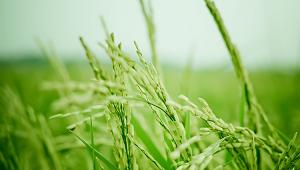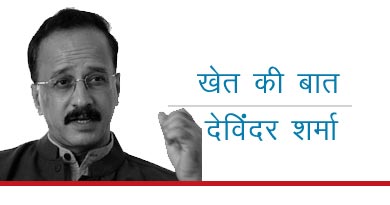Farmers struggle amidst rising costs and chemical dependency
Raipur | Correspondent : The impact of soaring inflation is hitting hard on farming communities across the Chhattisgarh.
Over the last five years, prices for essential farming inputs such as fertilizers, seeds, medicines, and agricultural equipment have nearly doubled. Additionally, the cost of labor associated with agricultural work has surged, infuriating the challenge of labor scarcity for farmers.
According to reports from various farming regions, the cost of cultivating staple crops like paddy has risen significantly. Five years ago, the cost of paddy cultivation per acre stood at approximately twelve thousand rupees, but today it has surged to around twenty-five thousand rupees per acre.
Progressive farmers like Bhuneshwar Prasad Sahu hailing from village Parsada of Patan block, Durg highlighted the drastic price hike. He notes that prices of almost all types of agricultural equipment including harvester, thresher, rota-veter, tractor trolley, iron nagar (plough) have increased. For instance, a 24 HP tractor, which previously cost around 4-5 lakh rupees, now commands a price tag of 8 lakh rupees.
Similarly, a 45 kgs bag of urea which was earlier available for Rs. 266.50 after subsidy its price in the market without subsidy reached Rs. 2,450.
The DAP fertilizer which was available for Rs. 1,290 five years ago is now available for Rs. 1,350 after subsidy and a (50kg) bag without subsidy is available for Rs. 4,073. putting further strain on farmers’ budgets.
Meanwhile, the rate of subsidized potash obtainable in Rs. 1700 per bag (50kg) and NPK fertilizer in Rs. 1,470 per bag, while in the open market without subsidy the price of potash is Rs 2,654 and the NPK is bought in Rs 3,291 per bag.
Disappointment can be seen on the faces of farmers due to the increase in the prices of seeds.
Farmers residing in village Amlidih of Durg district Dagar Devangan and Ramji Devangan compared the price of paddy seeds five years ago which was available at 30-40 Rs. per kg, is now obtained at 70-80 rupees per kg. Besides, the price of certified seed available in the market has reached 700-800 rupees per 10 kg.
Ramji Devangan told CGKHABAR, that 20-30 kg of seed is used in one acre. While, the price of pesticides has also increased by 20 percent in five years.
The adoption of machinery in agriculture has resulted in escalated costs, particularly impacting small and medium-scale farmers.
Vinod Verma, a farmer from Batang village, recalls about the time when every farmer in the village owned traditional tools comprising bullock carts and oxen, enabling them to manage farming tasks independently. However, with the appearance of mechanization in agriculture, there’s been a notable shift towards reliance on machinery equipment’s for ploughing, threshing, and transportation activities.
The majority of farmers now lack personal access to essential equipment like tractors, leading them to go for rental services. This dependence on rented machinery significantly inflates agricultural costs.
Dujaram Patel, a farmer from village Motipur in durg district mentioned five years ago, ploughing with tractor cost Rs. 500 per hous which has now surged to Rs 1,000-1,200 per hour.
Additionally, Rotovators rates of amount 1,200 the harvesters cost Rs. 2,200-3,000 and threshers at Rs 1200 per hour. This is due to the continuous rise in the prices of diesel, leading to the escalation of rental agricultural equipment.
Due to the increased price hike the farmers are also grappling with the shortage of farmers. This has further led to substantial increase in wage rate.
According to the Bhatagaon farmer Ramesh Sharma, women laborers play a crucial role in farming activities, contributing significantly from planting to weeding and harvesting Men typically handle tasks like fertilizing, spraying pesticides, and sowing seeds.
Five years ago, the daily wage for women laborers was 90-120 rupees, but this has now increased to 200-250 rupees per day, more than doubling their previous earnings.
Similarly, the wages for male laborers have risen from 200 rupees per day to 350-450 rupees. Operators of agricultural machinery, which used to earn 200-250 rupees per day, now receive 500-600 rupees per day.
Use of chemical fertilizers increased significantly
In the past, farmers practiced animal husbandry and produced organic fertilizer from cow dung, which they used in their fields to achieve good yields.
The benefits of organic fertilizer would last for two to three years. However, with the decline in animal husbandry and the subsequent decrease in organic fertilizer production, farmers have become more reliant on chemical fertilizers.
With an aim to achieve higher production, farmers are now using large quantities of chemical fertilizers. This practice is not only degrading the soil’s fertility but also increasing its hardness. The increased dependence on chemical fertilizers has driven up their prices as well.
Additionally, the high cost of animal fodder has made animal husbandry more expensive. The price of a pair of bulls in the market has now reached lakhs of rupees.
Chief Minister: Ensure farmers have no issues getting fertilizers and seeds
Chief Minister Vishnudev Sai has issued directives to ensure that farmers do not face any problems with the availability of fertilizers and seeds for the upcoming Kharif season.
He has instructed the officials of the Agriculture and Cooperative Department to closely monitor the storage and distribution of standard quality fertilizers and seeds. The Chief Minister emphasized that quality fertilizers and seeds should be supplied to farmers based on their demand through societies by June 15.
He also stressed the importance of making adequate arrangements in advance to avoid any shortages.
Additionally, he has called for strict action against those who are negligent in the storage and distribution processes. Officials in the Agriculture Department have been tasked with monitoring the demand, storage, distribution, and quality of fertilizers and seeds in their respective areas.




